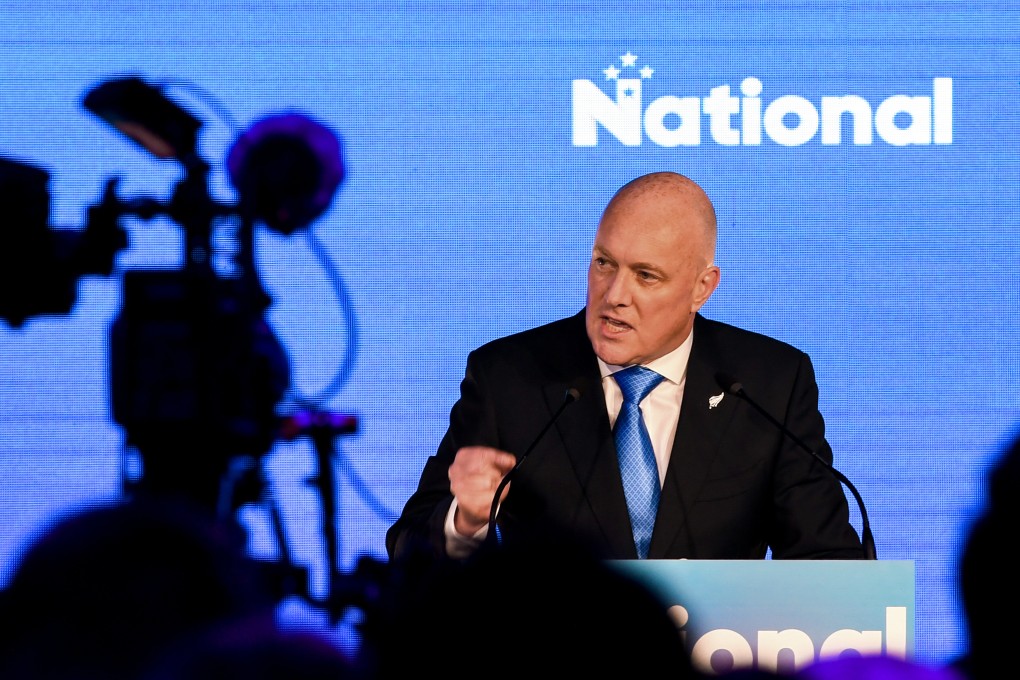New Zealand leans towards pragmatism
- The country’s leader-elect, Christopher Luxon, does not see China as the bogeyman, setting the stage for improved ties that put business first

It may be early November before the final result of New Zealand’s election is known. But it will not affect a change of government or positive signs for the country’s relations with China, its biggest trading partner.
Ahead of the poll campaign, Prime Minister-elect Christopher Luxon said in reply to a question he would “absolutely” accept funds from China for a US$15 billion road infrastructure project.
He said a number of sovereign wealth funds had expressed interest in such projects, and he was open to Chinese cash pouring into them to ensure New Zealand had modern and reliable infrastructure.
However, in a reflection of the small part foreign policy played in the campaign, it was not until a few days before the election that Luxon, then opposition National Party leader, expounded on his approach to China.
Instead, the former head of Air New Zealand and top North American executive of multinational Unilever attacked governing Labour Party leader Chris Hipkins – who took over after Jacinda Ardern stepped down in January – on crime and the economy.
The strategy won enough seats for National to govern with a coalition partner, or partners, when the final result is known.